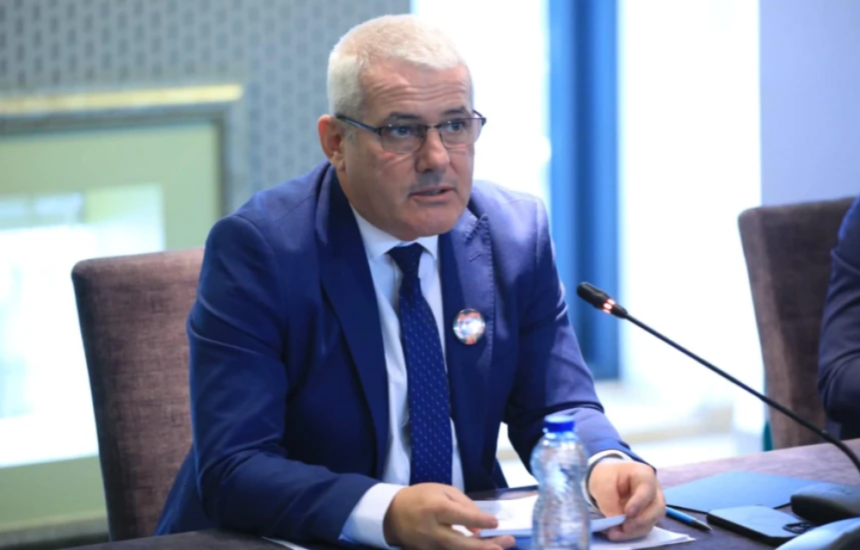Kosovo’s Minister of Internal Affairs, Xhelal Sveçla, stated today that members of the Serb List have been involved in ongoing unrest in the northern regions of Kosovo.
Sveçla made these remarks during the release of a report titled “Security in the North of Kosovo after the Terrorist Attacks in Banjskë and the Ibër-Lepenc Canal.” He added that Kosovo’s ongoing efforts to extend its sovereignty in the northern part of the country have exposed Serbia’s territorial aspirations in Kosovo.
The minister also mentioned that parallel Serbian structures have cooperated with the official authorities in Belgrade, following orders from Serbian President Aleksandar Vučić and Milan Radoičić, a prominent figure in the Serb List.
Sveçla highlighted that since 2023, such criminal acts have escalated, likening them to attacks that only Russia has carried out in Ukraine, with Serbia carrying out similar actions in Kosovo.
“We are counting hundreds of attacks on the police, media, and citizens, with Serbia standing behind all of this. The integration of many of these parallel Serbian structures into our institutions, as per the Brussels Agreement, has enabled the installation of structures that report to Serbia and Vučić, undermining our institutions… Since the beginning of 2023, as the world has seen, these criminal acts have intensified, turning into attacks akin to those carried out by Russia in Ukraine, with Serbia doing the same in Kosovo,” Sveçla said.
He also pointed out that the Serb List could not claim innocence in the attacks against KFOR members, recalling the violent protests in Zveçan in May 2023, where Serbian protesters clashed with NATO peacekeepers, injuring more than 90 soldiers.
“Under the guise of political representatives of Kosovo Serbs, after meetings with Serbian President Aleksandar Vučić, Serb List leaders have been directly involved in the ongoing unrest, with their closest associates actively attacking KFOR members, the police, and our institutions. The Serb List cannot claim to be uninvolved in the attacks on KFOR members. Assistants, drivers, and bodyguards of the Serb List have been identified, and some of them are now in hiding,” he added.
Skender Perteshi from the Kosovar Center for Security Studies also noted an increase in armed attacks on the Kosovo Police.
“The main findings of the report indicate that over a year after the attack in Banjskë, many individuals involved are still free in Serbia, having fled there. Moreover, the main leader, former deputy leader of the Serb List Milan Radojičić, has not yet been brought to justice. Since October 2023, there has been an increase in the intensity of armed attacks against the Kosovo Police, local and central government institutions in the northern part of the country, EULEX, KFOR, and the civilian population,” Perteshi stated.
The report, “Security in the North of Kosovo after Terrorist Attacks in Banjskë and the Ibër-Lepenc Canal,” launched by the Institute for Security and Resilience – PREVENT, analyzes the security situation in Kosovo’s northern municipalities after the attacks of September 24, 2023, and November 29, 2024. It also assesses the risks posed by extremist and terrorist organizations such as “Civil Protection” and “Northern Brigade.”







